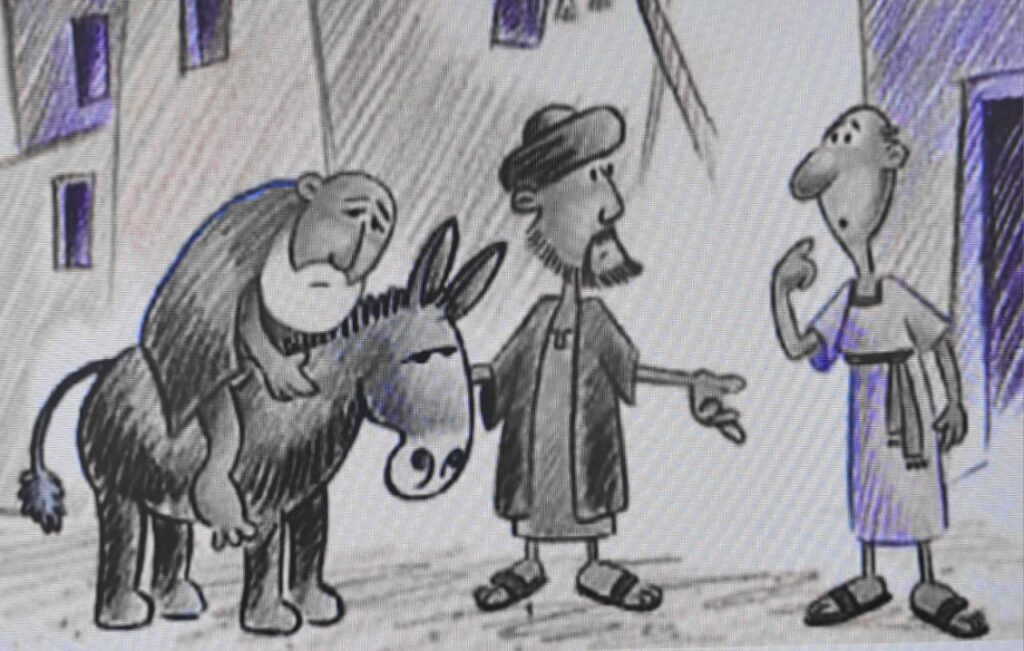God’s love is not an abstract idea. It is intimate, tangible, and deeply personal. John’s gospel (3:16) reveals that God loved the world so much that He gave up His Son to save the world. That passage continued to say that God did not send His Son into the world to condemn it, but that the world may have life through Him. In John again (10:10), Jesus announces that he has come so that we in the world may have life abundantly. With these, we can rightly assume that God holds us in His palms and calls us His own (Isaiah 49:16), embedding within us the capacity to love and be loved. This divine imprint shapes our identity as God’s children and becomes complete when we live it out with others through our sacrifice of time, talent, and treasure. Consequently, in a world overwhelmed by division, selfish ambition, and indifference, the Christian gospel boldly invites us into a way of life where love without cost is not optional but essential.
To break the foregoing down into details, in today’s first reading from the Book of Deuteronomy (30:10-14), Moses reminded us that God’s commandments are not distant ideals or unreachable goals. He reiterated that they are near, written on our hearts, and placed on our lips so we are not left to wander or guess the path to follow. That passage from Deuteronomy confirms that love is already within reach in our hearts. All that remains is to carry it out, to act in ways that echo God’s nearness and compassion to others, especially toward the vulnerable.
In the second reading from the letter to the Colossians (1:15-20), St. Paul grounded our call to love by returning to Christ’s cosmic and incarnate person, where God meets humanity. St. Paul said that in Him (that is, in Jesus Christ), all things were created and held together, visible and invisible, sacred and secular, heaven and earth. The message from that passage is that Jesus reconciles all through the cross, offering a vision of peace that stems not from dominance but self-giving love. Leaning further from that passage, St. Paul said that, as the Head of the Church, Christ calls His followers to reflect this reconciling and redemptive love in their own lives, bringing us to seek how that call connects to us today. My one cent/penny response is that it does so clearly concern us in a world marked by war, violence, isolation, racism, and fear that we are summoned to become agents of healing, not by standing above or hovering over the wounded, but by stooping low, as Christ did, to lift them. We rise by lifting others. This call connects us as neighbors, brothers, and sisters of the one Family of God.
In Luke’s Gospel (10:25-37), Jesus clarifies this new family, especially about hurting or wounded people. He redefines who our neighbor is in the Parable of the Good Samaritan, challenging the Jewish scholar of the law and every modern believer who draws lines or builds a wall around love. The Good Samaritan was a cultural outsider who became an embodiment of mercy by not looking in the opposite direction. He interrupted his journey, gave resources, and tended to a stranger’s wounds without measuring the cost or seeking recognition. In that Gospel, Jesus concludes with a simple but world-shaking directive: “Go and do likewise.” This call is the Christian gospel lived out and a proclamation we hear at the end of every Eucharistic celebration when the priest or deacon announces: “Go in Peace and Proclaim the Gospel with your Lives.” That pronouncement that we respond with, “Thanks be to God,” is not a response that calculates or hesitates, but a love initiated in the liturgy to motivate us to take action, bearing in mind that it requires sacrifice and an open arm. Actions like them offer hope to a broken world.
In light of these truths, God’s message for us today comes full circle. Firstly, we are held in God’s palm and marked by His love, not merely for comfort but for action. Secondly, when we live in this love, offering it to family, friends, and strangers alike, we reflect the God who made us in His image. Thirdly, our actions become a clear sign that we are God’s children, and fourthly, in giving of ourselves without measuring the cost, we proclaim the Gospel in a most concrete form. Finally, today’s world may tempt us to retreat into self-interest, fear, or fatigue, but the Gospel calls us forward to love deeply, give freely, and live boldly. In doing so, we do not just speak of God’s love; we embody it.




Comments are closed.